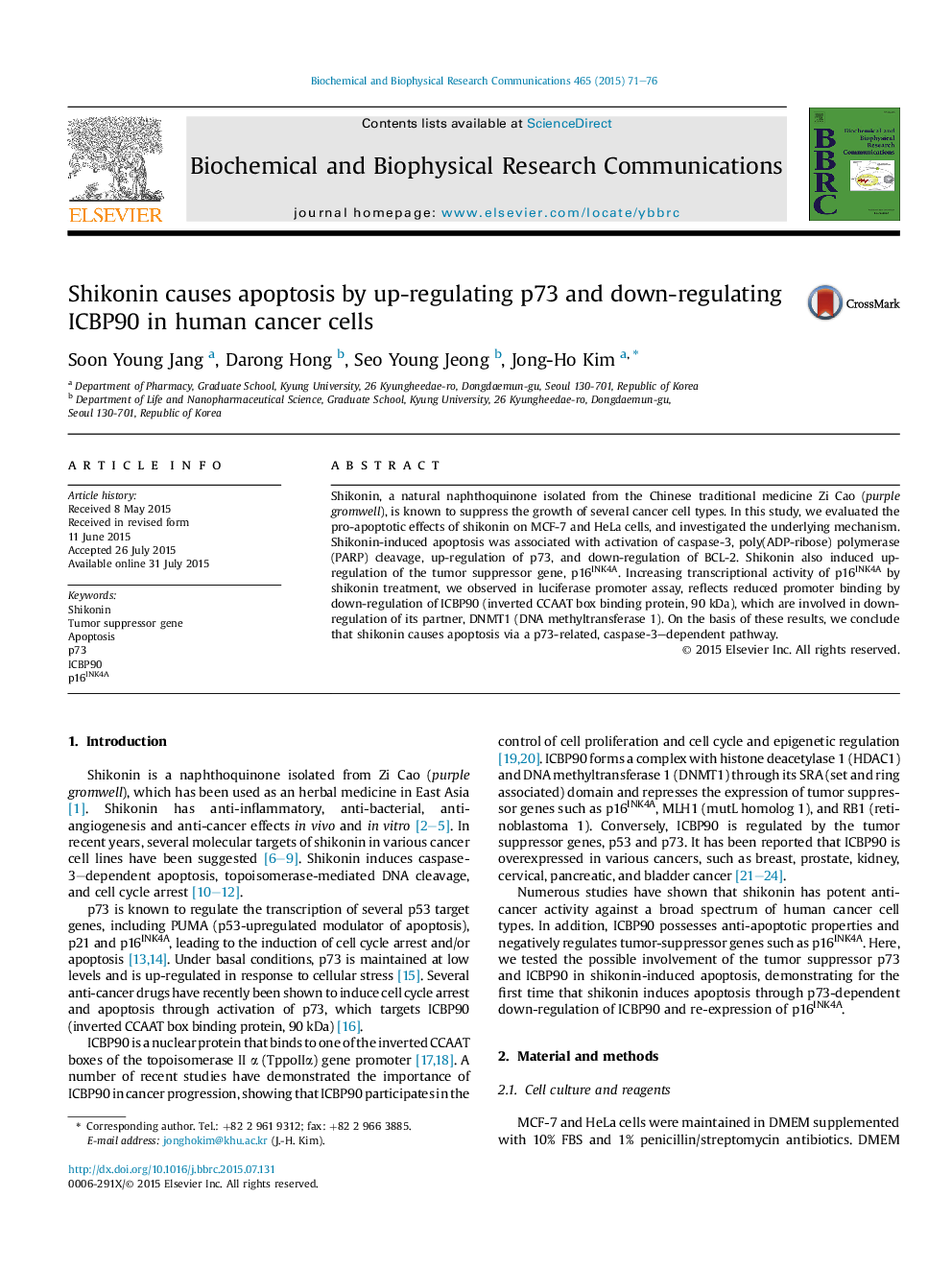| Article ID | Journal | Published Year | Pages | File Type |
|---|---|---|---|---|
| 1928120 | Biochemical and Biophysical Research Communications | 2015 | 6 Pages |
Abstract
Shikonin, a natural naphthoquinone isolated from the Chinese traditional medicine Zi Cao (purple gromwell), is known to suppress the growth of several cancer cell types. In this study, we evaluated the pro-apoptotic effects of shikonin on MCF-7 and HeLa cells, and investigated the underlying mechanism. Shikonin-induced apoptosis was associated with activation of caspase-3, poly(ADP-ribose) polymerase (PARP) cleavage, up-regulation of p73, and down-regulation of BCL-2. Shikonin also induced up-regulation of the tumor suppressor gene, p16INK4A. Increasing transcriptional activity of p16INK4A by shikonin treatment, we observed in luciferase promoter assay, reflects reduced promoter binding by down-regulation of ICBP90 (inverted CCAAT box binding protein, 90Â kDa), which are involved in down-regulation of its partner, DNMT1 (DNA methyltransferase 1). On the basis of these results, we conclude that shikonin causes apoptosis via a p73-related, caspase-3-dependent pathway.
Related Topics
Life Sciences
Biochemistry, Genetics and Molecular Biology
Biochemistry
Authors
Soon Young Jang, Darong Hong, Seo Young Jeong, Jong-Ho Kim,
